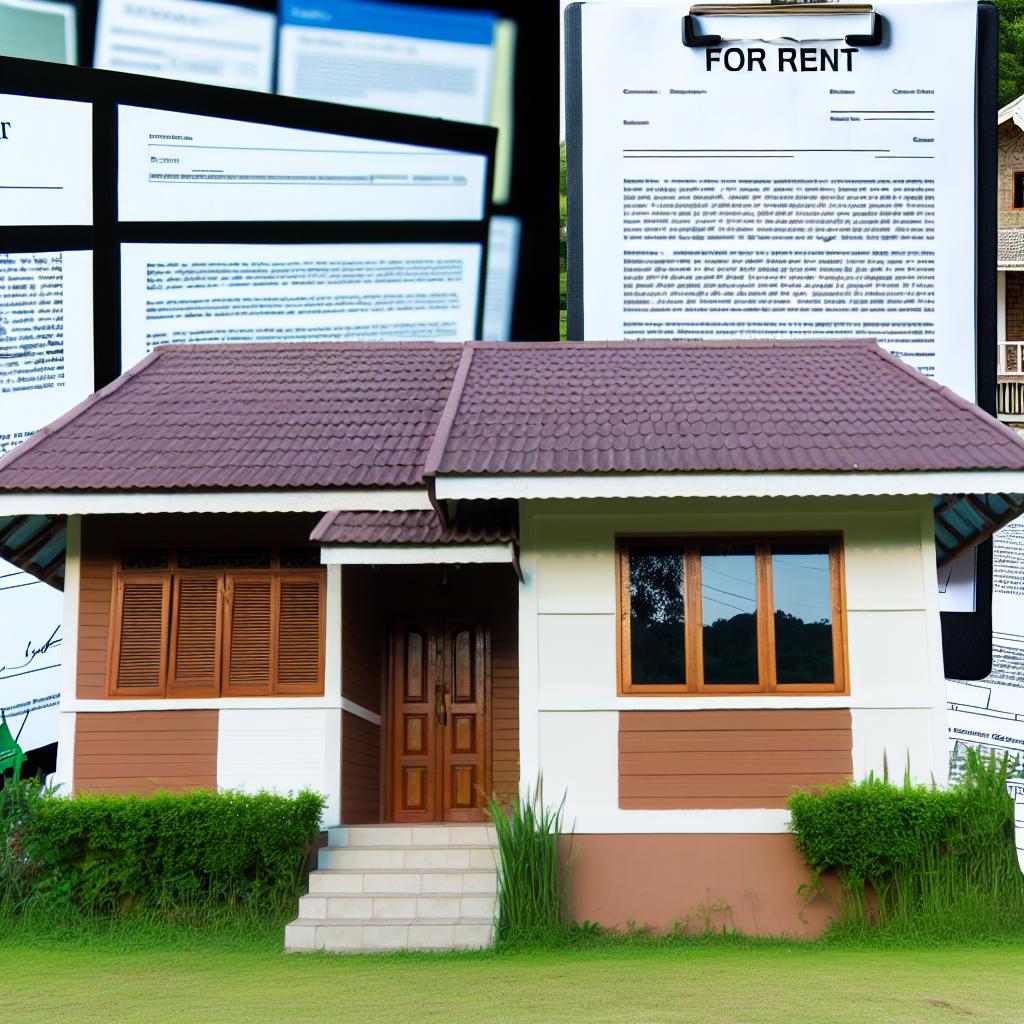Legal considerations for renting out your second home

Understanding Legal Requirements for Renting Out Your Second Home
When contemplating renting out your second home, it is vital to understand the legal requirements that accompany such a decision. Landlords are subject to laws and regulations that vary considerably by location, and compliance is essential to avoid penalties. Ensuring you are fully informed and properly prepared for this process can make the experience smoother and protect your financial and legal interests.
Local Zoning Laws and Regulations
Before offering your second property for rent, familiarize yourself with local zoning laws. These regulations determine whether your property can be used as a rental at all, especially in neighborhoods with strict residential zoning. The purpose of zoning laws is to separate different sectors of a community to maintain the quality and character of neighborhoods. Consulting with the local zoning board or a real estate attorney can provide clarity. This step helps prevent any unintended violations that could lead to fines or legal disputes.
Short-Term Rentals
Many localities have specific rules for short-term rentals (e.g., Airbnb-style accommodations) that differ from those for long-term leasing. Some areas may have outright bans or limits on short-term rentals to protect the character of residential neighborhoods. Ensure you understand these regulations, including any required permits or licenses, imposed by your jurisdiction. Compliance not only prevents potential legal issues but also helps maintain good relations with neighbors who may have concerns about transient renters.
Landlord-Tenant Laws
Once you decide to rent your property, you become subject to both state and federal landlord-tenant laws. These laws are designed to ensure fair housing practices and protect the interests of both parties. Understanding and adhering to these laws is crucial to avoiding disputes and potential legal action. Key areas of landlord-tenant laws include lease agreements, security deposits, entry to the property, and eviction procedures.
Lease Agreements
A solid lease agreement is crucial. It should be comprehensive and tailored to your specific circumstances, often involving aspects such as rent amount, lease duration, maintenance responsibilities, and renewal terms. A well-drafted lease agreement helps clarify expectations and responsibilities for both parties, reducing the risk of misunderstandings or disputes. Both parties should fully understand the contract before signing. If possible, seek the assistance of a legal professional to draft or review the agreement.
Insurance Considerations
Securing adequate insurance coverage is essential when renting out a second home. Standard homeowner’s insurance policies might not cover rental-related incidents, such as tenant-caused damage or liability claims. Verify that your policy includes coverage for rental operations, or consider purchasing additional landlord insurance. This type of insurance typically covers property damage, liability, and potential loss of rental income.
Liability Coverage
Liability coverage protects you in case a tenant or guest is injured on the property. Ensuring you have sufficient protection is crucial to safeguarding your personal assets from potential legal claims. Addressing any potential hazards on the property before renting it out is important in reducing liability risks and demonstrating due diligence as a landlord.
Tax Implications
Renting out your second home introduces various tax implications. Income from rentals is taxable, requiring detailed record-keeping of income and expenses. It is imperative to track all rental income and deductible expenses meticulously. Consult a tax professional to ensure compliance with IRS regulations and to optimize potential deductions. This consultation can help you understand the various tax obligations and benefits associated with rental properties.
Home Office Deductions
If you manage rental operations from a home office, you might qualify for specific deductions. To learn more about these possibilities, consider consulting IRS publications or a qualified accountant. These deductions can offer significant savings if you meet the eligibility criteria and maintain proper documentation.
Accessibility and Safety Standards
Compliance with accessibility and safety standards is not only a legal obligation but also a moral one. Ensuring that your rental property meets safety standards such as having operational smoke detectors, carbon monoxide alarms, and fire extinguishers is critical. Regular property inspections help maintain safety, fulfilling legal responsibilities and reducing potential liabilities. Creating a safe environment can also make your property more attractive to potential tenants.
Legal Advice and Representation
Navigating the legal landscape of property rental can be complex. Engaging with a real estate attorney can offer valuable insights and representation. They can assist in drafting lease agreements, ensuring compliance, and managing disputes with tenants. Their expertise is particularly beneficial if you face any legal challenges, disputes, or require alterations to existing contracts.
For more detailed guidance on renting out your second home, consider reaching out to professional legal services or real estate organizations, which often offer resources and consulting options for property owners. Educating oneself about these aspects is essential in ensuring a successful experience in property renting, protecting both your investment and your peace of mind.
